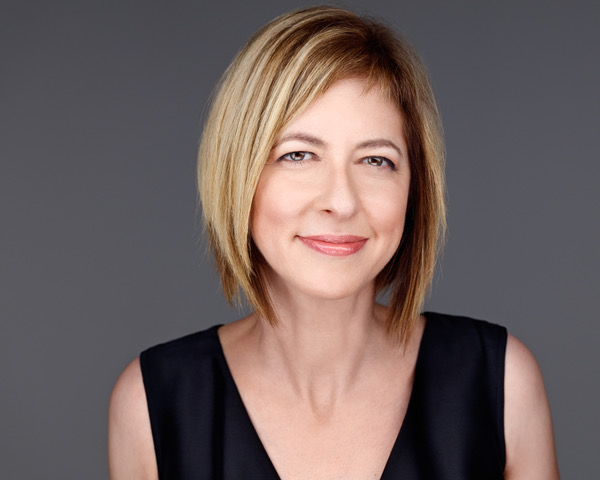
- This project has passed.
When Things Don’t Fall Apart – Global financial incoherence and beyond
YSI Dialogue with Andrea Enria (SSM)
Start time:
June 24, 2020 @ 4:30 pm - 5:30 pm
EDT
Location:
Online
Type:
Other

Speakers

Ilene Grabel
Description
We are glad to announce our forth webinar in the series 'Central bankers and new banking paradigms: Dialogue with Andrea Enria'. Although our event had to be suspended, we decided to continue with the webinar series in order to keep on exploring interesting topics related to the global financial architecture. We are thrilled to have Prof Ilene Grabel with us, who will present her latest book and provide us with further reflections on financial governance in the era of Covid-19.
When Things Don’t Fall Apart: Global Financial Governance and Developmental Finance in an Age of Productive Incoherence (The MIT Press, 2017) won the 2019 European Association for Evolutionary Political Economy Myrdal Prize, the 2019 Int'l Studies Association International Political Economy Best Book Award, & the 2018 British Int'l Studies Association International Political Economy Book Prize.
Open access edition of the book available at: https://direct.mit.edu/books/book/3634/When-Things-Don-t-Fall-ApartGlobal-Financial
In When things Don’t Fall Apart, Ilene Grabel makes a simple but controversial claim, based on the work of the eminent social scientist Albert O. Hirschman. Grabel argues that as concerns global financial governance and development finance we are now in a period that she calls productive incoherence. Unlike the Keynesian period of the middle 20th century and the neoliberal period that followed, the current conjuncture lacks an overarching theoretical framework to guide financial governance. In its absence, Grabel maps the proliferation of institutional innovation at the national, regional, and transregional levels. These experiments are grounded in a spirit of Hirschmanian pragmatism rather than Keynesian or neoclassical dogmatism. They are ad hoc, often limited in scope, and even inconsistent with each other. They are in that sense incoherent. The book’s novel normative claim is that this incoherence is productive. It is allowing for new institutional and policy innovations that are contributing to a pluripolar financial governance architecture that is more robust and offers greater opportunities for problem solving and experimentation than the coherent architecture it is displacing.
Grabel substantiates these claims with empirically-rich case studies that explore the effects of recent crises on established and new networks of financial governance (such as the G-20); transformations within the IMF; institutional innovations in liquidity support and project finance from the national to the transregional levels; and the “rebranding” of capital controls. Grabel acknowledges, however, that the incoherent transformations underway also pose grave risks. She considers these risks in the concluding chapter of the book.
Grabel will also reflect on the constructive and destructive aspects of incoherence in the global financial arena in the era of Covid-19.
Speaker's short bio
Ilene Grabel is a Distinguished University Professor at the University of Denver and Professor of International Finance at the Josef Korbel School of International Studies of the University of Denver (USA). She co-directs the graduate program in Global Finance, Trade, and Economic Integration at the Korbel School. Her research and teaching interests focus on the political economy of international financial policy, institutions, and financial flows; global financial governance; global, regional, and transregional financial architectures; and finance and economic development.
See more of Prof Grabel's journal articles, book chapters and working papers here: https://ilenegrabel.com/journal_book_papers/
For those that would like to participate but are not currently registered in the Young Scholars Directory, feel free to contact [email protected] to get the link ahead of the event.
We look forward to seeing you online!
Orsola, Stefano, and Cecilia
Hosted by Working Group(s):
Attendees
Maria Cecilia del Barrio Arleo
Kethelyn Ferreira
Dustin Fergusson-Vaux
Étienne Desfossés
Nuhamin Solomon
Binit Agrawal
Zach Kopelman
Devika Dutt
Michael Rendon
Hanna Karolina Szymborska
Mohit Arora
farhad gohardani
Tarik Imamović
Farhan Mohamed Esse
Bruno Tomio
Marie Storli
giuseppe simone
Giuseppe Bianco
Giuseppe Bianco
Antonio Grillo Neto
Ádám Kerényi
Nathalie Marins
Jesus Uriegas
Ezebuilo Ukwueze
Tanya Chatterjee
Asgeir B. Torfason
Rok Piletic
Azar Hasanli
Mark Firmani
Riccardo Zolea
Hari Venkatesh
Frederik Vitting Hermann
Jérémy ZHANG
Denisse Vélez
Felipe Hernandez
Giuliano Toshiro Yajima
Francesca T. C. Manning
Hebatallah Adam
Thiago Cavalcante
David del Val
Ria Kasliwal
Georgette Fernandez Laris
Andrei Adam
Pedro Reguera
Joseph Jung
Luca Picci
Annalisa Tassi
Vienne Chan
Rafael Lima Sakr
Desa Berisha